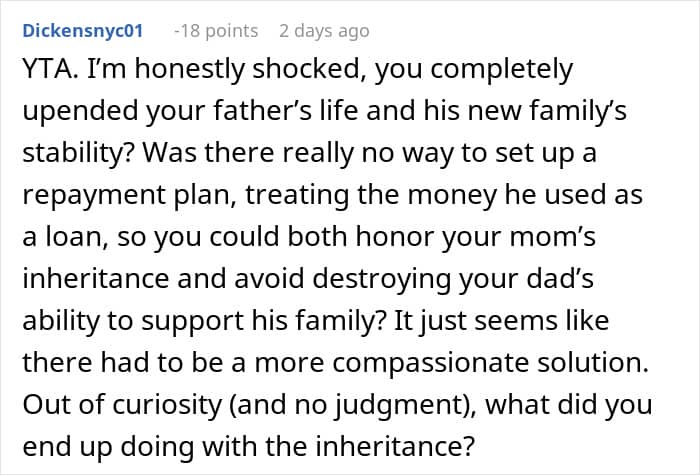We all hope our family relationships will be simple and supportive. Unfortunately, that’s not always the case.
One woman found herself in the middle of a deeply uncomfortable situation. After her mother passed away when she was a child, she was left a $100K inheritance. But as a teen, her father used that money to start a business with his new wife, essentially stealing it from her.
Now an adult, she decided to fight for what was rightfully hers and took him to court. She doesn’t regret the decision—though now she’s asking: was it heartless to leave his new family with nothing?
RELATED:The woman went on a mission to win back the $100K inheritance her dad had taken from her years ago

But now she’s questioning whether it was right to leave his new family empty-handed
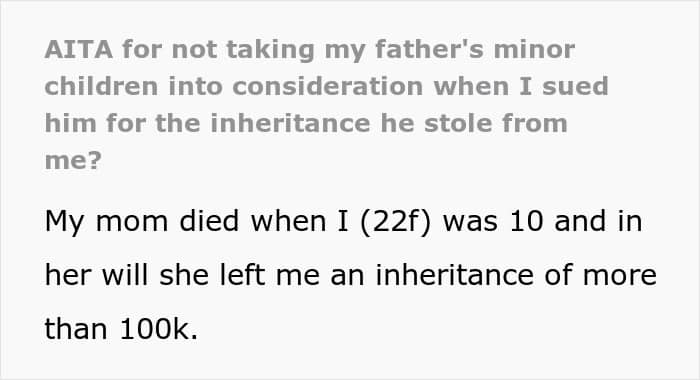
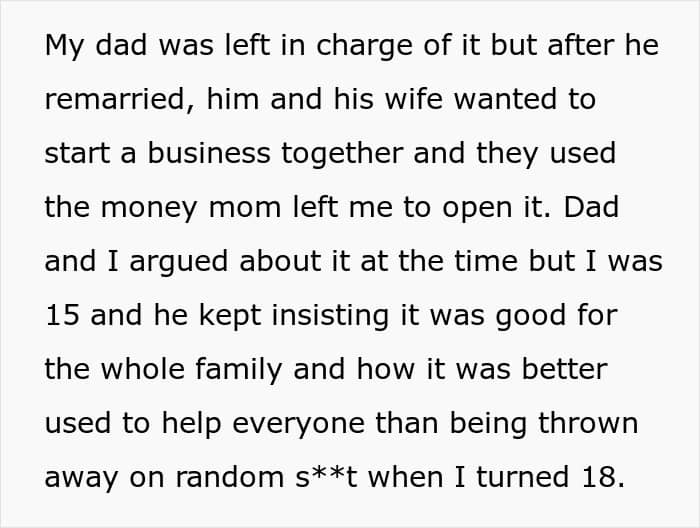
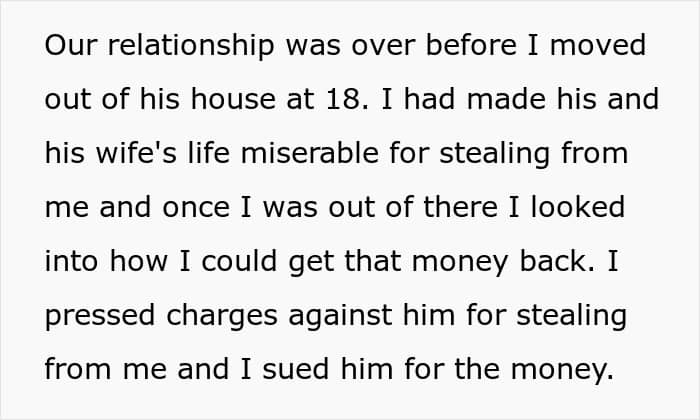


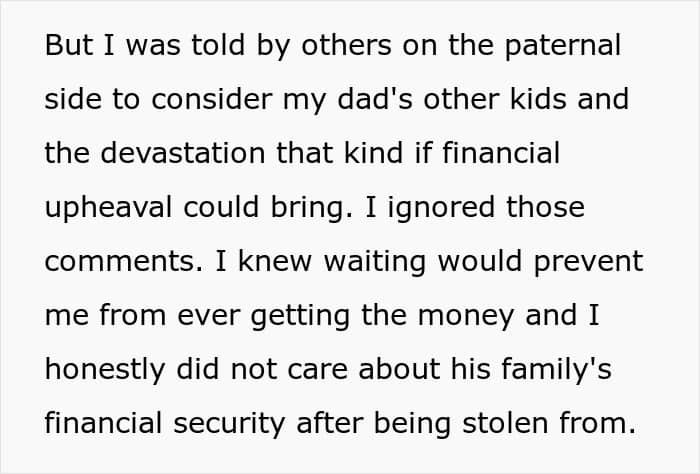
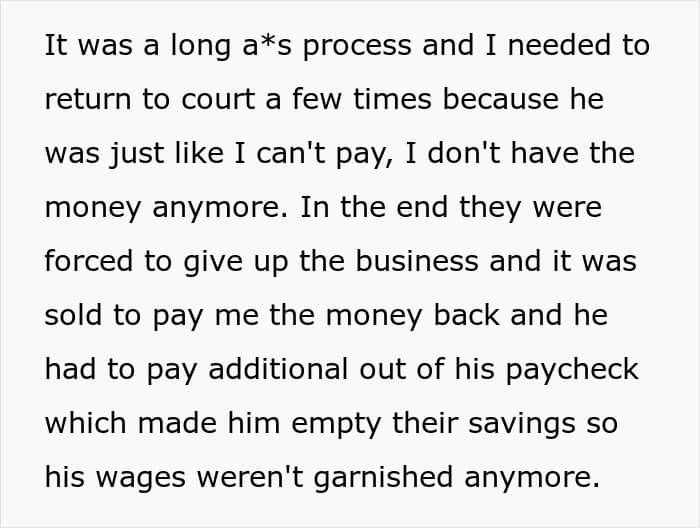
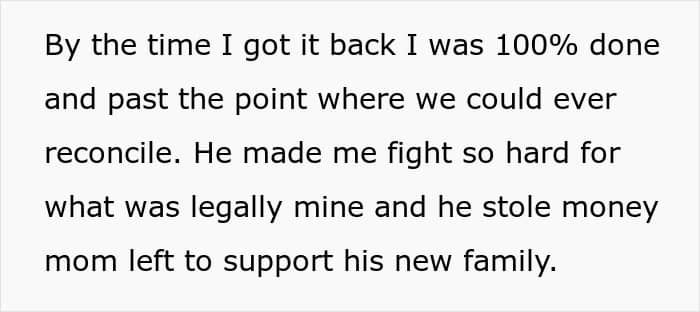



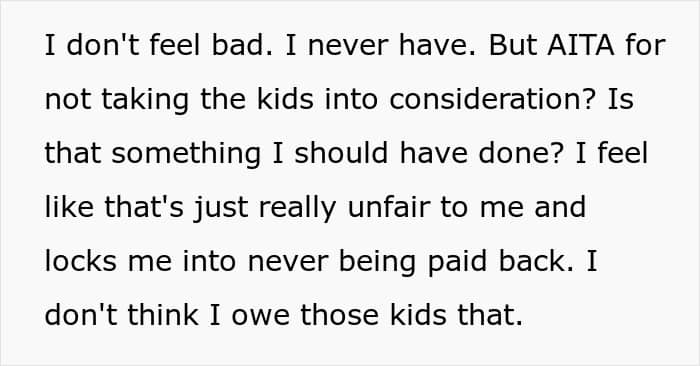

Almost 70% of families lose part of their inheritance due to some kind of conflict
Your family might be the most supportive, loving, and tight-knit group around, willing to go through hell and back for each other. But when it comes to inheritance? That’s when things can get messy. You never really know who might turn on you.
Sometimes, it could even be your own father, like in the story above.
While it may seem dramatic, family inheritance disputes are far from rare. In fact, research by the Williams Group, spanning more than two decades, found that nearly 70% of families lose a portion of their inherited wealth, mostly due to arguments and estate battles.
And honestly, it’s not all that surprising. When grief, emotions, money, and family heirlooms collide, it creates a powder keg of tension that can explode at any moment.
So is there anything you can do to reduce the risk of family fallout?
According to FindLaw, a resource for legal information aimed at consumers and small businesses, there are a few steps that won’t eliminate every possible fight, but they might help minimize the damage. Here’s what they suggest:
Prepare a will and keep it updated
It sounds obvious, but a shocking number of people pass away without ever writing a will. And that often leads to chaos.
A clear, updated will is one of the simplest ways to avoid confusion and prevent unnecessary conflict. It outlines what goes to whom and why.
Some things to include:
A list of what your heirs will inherit (property, valuables, etc.)The name of a legal guardian if you have minor childrenAny wishes to disinherit someoneWhether part of your estate should go to charity
Depending on your situation, you might want an estate planning attorney to help guide the process, especially if you’re planning for specific needs or circumstances.
What happens if you don’t leave a will?
A lot of people avoid writing a will, whether it’s because it feels uncomfortable or they assume their family will work things out fairly. But that’s not always how it plays out, especially in complex families with former spouses, multiple kids, or extended relatives.
Without a legal document outlining your wishes, your estate is divided according to state intestacy laws. That can result in disputes, confusion, and broken relationships.
Talk to your family in advance
If your family has generally stable dynamics, it can help to have an open conversation about what to expect after you pass.
It doesn’t have to be dramatic or morbid, it can simply be about setting expectations. Surprising loved ones with major decisions in your will, like leaving everything to charity or cutting someone out, rarely ends well.
Being upfront helps prevent disputes and gives your family space to process everything without added shock or resentment.
Consider a no-contest clause
A “no-contest clause” in your will can discourage relatives from disputing its contents. In short, if someone challenges your will and loses, they could also lose their inheritance.
People may contest a will for reasons like:
Feeling unfairly excludedBelieving someone manipulated or pressured youClaiming there’s a more recent versionAlleging fraud or forgery
These clauses don’t always hold up in court, so it’s smart to make sure the rest of your will is solid too.
Don’t put it off
The best time to make a will is sooner rather than later.
Even if you don’t have many assets, basic estate planning can make things easier for those you leave behind. Online forms are available, though people with significant assets might benefit from legal guidance.
Adding documents like a power of attorney or health care directive can also help ensure your wishes are followed—before and after you’re gone.
The woman later shared more details in the comments

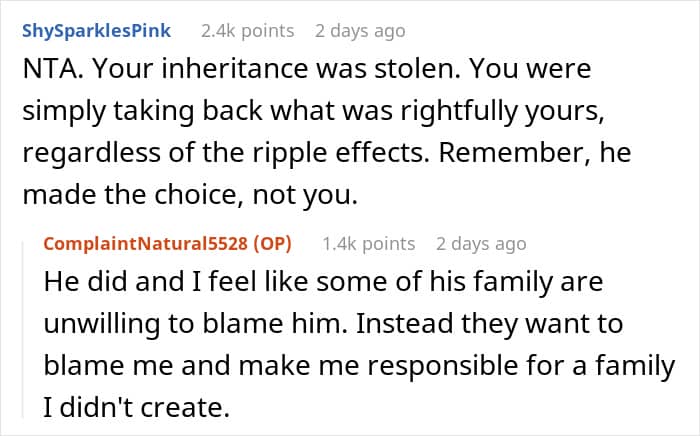







Some readers felt she was completely justified in her actions
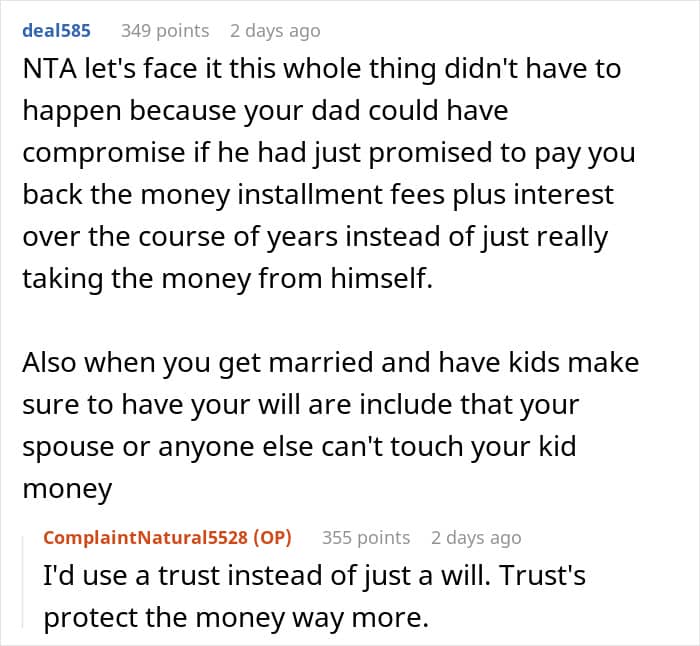










While others believed leaving the family with nothing was morally wrong

